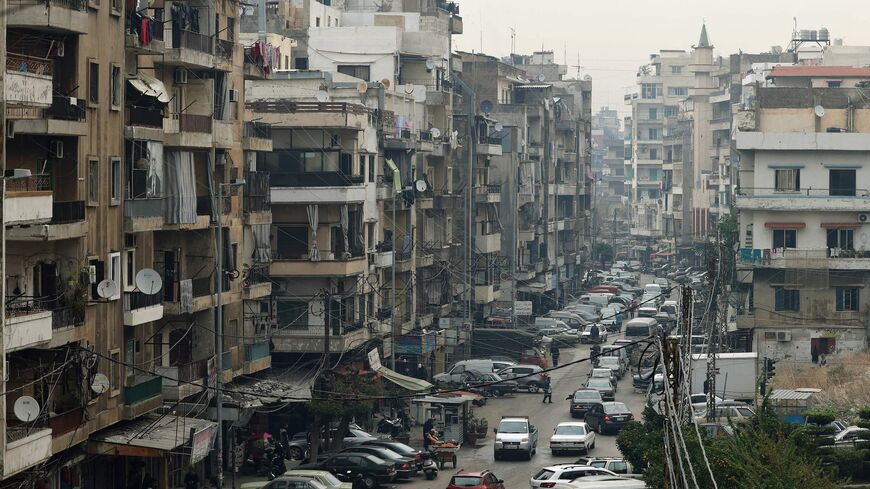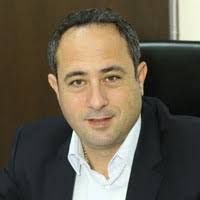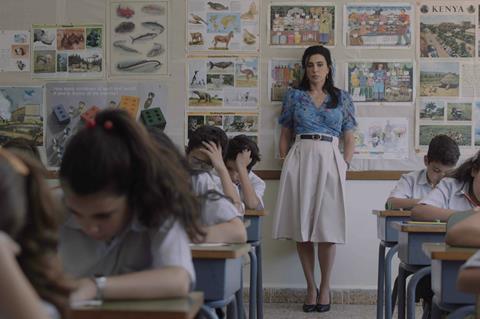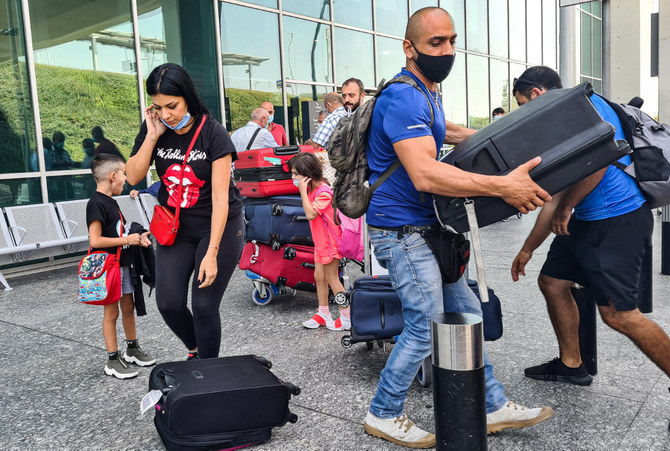
By Rodayna Raydan -- al-monitor -- Lebanon’s worsening water crisis is placing households and businesses under stress. The country is known for abundant water resources but without implementation of strategies to conserve and protect them, it remains one of the most water-threatened nations on earth. Clean water in Lebanon is simply no longer affordable and households are trying to use as little as possible. Amid water shortages in most of the country, residents are paying a large portion of their income to private companies to fill the tanks on their roofs. “If I didn’t pay for water from private companies, my taps would run dry,” Beirut resident Nada Kanso told Al-Monitor.
Environmental groups blame the government’s policies for Lebanon’s water crisis, saying the lack of adequate water infrastructure and mismanagement have brought the situation to a critical point. “The situation has become unbearable as residents are having to pay over a million Lebanese pounds weekly to fill up their water tanks, while the minimum wage is 675,000 Lebanese pounds,” said Yousef Shwai, a private water distributor in one village in Beqaa. One million Lebanese pounds are equivalent to $35 at the black market rate.
Last summer UNICEF warned, “Unless urgent action is taken, more than four million people across Lebanon — predominantly vulnerable children and families — face the prospect of critical water shortages or being completely cut off from safe water supply in the coming days.” The cash-strapped government has not invested in keeping water supplies safe and secured, according to a report from The World Bank. Environmental consultant and engineer Tamara Ghanem told Al-Monitor, “Lebanon’s tap water is extremely toxic, to the extent that you can’t even drink it.”
The Beirut and Mount Lebanon Water Corporation, a service organization that provides water for about half of Lebanon, recently announced the start of severe water rationing. Al-Monitor spoke to a source within the corporation who wished to remain unnamed. He said, “The emerging water crisis is expected to escalate if no adequate solutions are found, especially for the electricity [shortage], which is one of the main interruptions to the supply of water.” According to the source, the devaluation of the Lebanese pound also prevents the water supply networks from being maintained as the water service organizations can no longer afford the imported parts that are essential for maintenance.

Lebanese businessman Tarek Tayyah (L), was found dead along six others in a helicopter crash in Italy on Saturday, nearly two years after his wife Hala Tayyah (R) perished during the Aug. 2020 Beirut Port blast. (Twitter)

Lebanese businessman Chadi Kredi
by arabnews.com -- by Bassam Zaazaa -- DUBAI: Tragedy hit an ill-fated Lebanese family on Saturday when one of its members died in a helicopter crash in Italy, nearly two years after his wife perished during the Beirut blast. Lebanese businessman Tarek Tayyah was reported to have been found among the seven bodies discovered by Italian rescuers, two days after their helicopter took off from Tuscany and disappeared from radar screens. Tayyah is the husband of jewelry designer Hala Tayyah, who was killed during the Aug. 4, 2020 Beirut Port explosion that killed more than 200 people. Lebanese media identified Tayyah and his countryman Chadi Kreidi among the seven crash victims.
The designer’s daughter Tamara Tayyah presented a pin, designed by her late mother, in the form of Lebanon’s map to French President Emmanuel Macron when he visited the explosion site days after the blast. Italian media said that the helicopter took off on Thursday from Lucca in Tuscany and was heading toward the northern city of Treviso when it was lost in bad weather over a remote area. “The rescuers have found dead the seven passengers from the helicopter, four of Turkish and two of Lebanese nationality, who were on a business trip to Italy, as well as the Italian pilot,” the prefect’s office in the city of Modena said. The helicopter was found in a mountainous area on the border between Tuscany and the Emilia Romagna region.
Kreidi was married and the father of four children. Co-workers, friends and family members of Kreidi and Tayyah took to social media asking users to pray for their safety after their aircraft went off the radar on Thursday.

by npr.org -- Leila Fadel -- Reena Advani -- Nina Kravinsky -- 1982 isn't your typical war film.
It's a love story set during growing tensions in the Middle East, when Israel invaded Lebanon 40 years ago. Lebanese filmmaker Oualid Mouaness, inspired by his own memories, wrote the script and directed the film. He was 10 years old, attending an idyllic school in the Beirut suburbs, when the war changed life as he knew it. "I do remember everything being so beautiful and everything sort of changing," Mouaness tells Morning Edition. "I remember that afternoon when the dogfights were going on in the sky. That's when my brother who was younger than me just completely lost it and started yelling at us to go inside because he thought the airplanes were going to fall on us," he says.
The invasion happened against the backdrop of a city divided, between a mostly Muslim West Beirut and a predominately Christian East Beirut. Mouaness bases 1982 at a school much like the one he attended. The film is set in the mountains of Lebanon and the school is picturesque. It's religiously mixed, the kids switch seamlessly from Arabic to English to French and they're not yet indoctrinated into the adult world of religious and ideological divides. Much of the story revolves around 11-year old Wissam and what it means to live in a place separated by checkpoints. As the fear of war looms, Wissam is consumed by a crush on a girl in his class – something that the filmmaker remembers experiencing from his own childhood.

By REBECCA ANNE PROCTOR -- arabnews.com -- DUBAI: When Lebanese cardiologist Walid Alami, 59, was 19 years old he worked as a volunteer in an emergency operating room and helped dozens of people who were wounded during Lebanon’s 1975-1990 civil war. After a massive explosion tore through Beirut’s port on Aug. 4, 2020, he once again found himself in the thick of life-saving emergency action. However, as has been the case for thousands of middle-class Lebanese professionals, the nation’s prolonged, overlapping crises eventually proved too much to endure, forcing him and his family to move abroad in search of safety and economic security.
Alami gave up a lucrative cardiology practice in the US and returned to Beirut in 2012 so that he could be closer to his extended family and his children could experience the nation of their roots. “I wanted my children to grow up in Lebanon and know their motherland,” he told Arab News. “My hope was that I would replicate my American practice there, improve the system, innovate and take care of patients like I did in the US. “But to my disappointment, things professionally didn’t go as planned because our system is corrupt, including the medical system.” Undeterred, Alami persisted, hoping that the country’s fortunes would eventually turn around. But poor governance, institutional decay and the nation’s economic collapse soon started to take a toll on his family’s finances. “I started losing money because of the banking system, the corruption and a decline in income,” he said. “Financially and professionally, I was doing worse than ever.”
Khazen History


Historical Feature:
Churches and Monasteries of the Khazen family

St. Anthony of Padua Church in Ballouneh
Mar Abda Church in Bakaatit Kanaan
Saint Michael Church in Bkaatouta
Saint Therese Church in Qolayaat
Saint Simeon Stylites (مار سمعان العامودي) Church In Ajaltoun
Virgin Mary Church (سيدة المعونات) in Sheilé
Assumption of Mary Church in Ballouneh
1 - The sword of the Maronite Prince
2 - LES KHAZEN CONSULS DE FRANCE
3 - LES MARONITES & LES KHAZEN
4 - LES MAAN & LES KHAZEN
5 - ORIGINE DE LA FAMILLE
Population Movements to Keserwan - The Khazens and The Maans
ما جاء عن الثورة في المقاطعة الكسروانية
ثورة أهالي كسروان على المشايخ الخوازنة وأسبابها
Origins of the "Prince of Maronite" Title
Growing diversity: the Khazin sheiks and the clergy in the first decades of the 18th century
Historical Members:
Barbar Beik El Khazen [English]
Patriach Toubia Kaiss El Khazen(Biography & Life Part1 Part2) (Arabic)
Patriach Youssef Dargham El Khazen (Cont'd)
Cheikh Bishara Jafal El Khazen
Patriarch Youssef Raji El Khazen
The Martyrs Cheikh Philippe & Cheikh Farid El Khazen
Cheikh Nawfal El Khazen (Consul De France)
Cheikh Hossun El Khazen (Consul De France)
Cheikh Abou-Nawfal El Khazen (Consul De France)
Cheikh Francis Abee Nader & his son Yousef
Cheikh Abou-Kanso El Khazen (Consul De France)
Cheikh Abou Nader El Khazen
Cheikh Chafic El Khazen
Cheikh Keserwan El Khazen
Cheikh Serhal El Khazen [English]
Cheikh Rafiq El Khazen [English]
Cheikh Hanna El Khazen
Cheikha Arzi El Khazen
Marie El Khazen